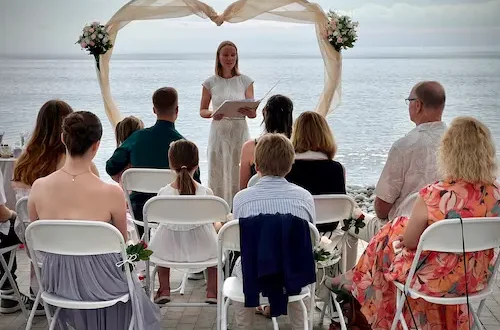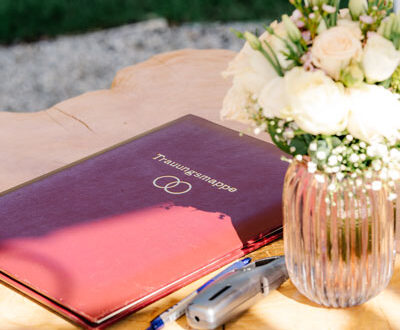
Weddings Abroad: Mistakes You Should Avoid When Planning

A wedding abroad promises sunshine, ease, and special memories – but without proper preparation, the dream can quickly turn into stress. Time differences, language barriers, and lack of local knowledge are just some of the challenges couples often underestimate.
In this post, I’ll show you the most common mistakes when planning a destination wedding – and how to easily avoid them with the right strategy.
1. Starting the Planning Too Late
Many couples underestimate how quickly popular venues or vendors are booked – especially on sought-after islands like Gran Canaria.
Avoid this mistake by:
- planning at least 9–12 months in advance
- booking flights and accommodation early
- reserving dates for symbolic or destination weddings in time
Tip: Even registry offices abroad often have early deadlines for documents and appointments.
2. Overlooking Legal Requirements
Especially for civil weddings abroad, documents, translations, and deadlines are crucial. Realizing too late that an apostille is required, for example, may cause delays or cancellations.
Solution:
- clarify early whether you want a symbolic, free, or legally valid wedding
- coordinate official requirements with a local planner
- prepare all documents in the original & correct language
3. Underestimating the Effort
A proposal can be planned quickly – a wedding cannot. Couples who think a few emails will suffice are often surprised: vendors may not respond immediately, cultural differences cause misunderstandings, and suddenly a key element is missing from the schedule.
Tip:
- Create a realistic timeline
- Get local support for logistics, schedules, and communication
- Plan buffer time on-site – especially before the big day
4. Budget Traps from “Extras”
Unexpected costs often arise from overlooked items: permits for venues, equipment rentals, translators, or extra transportation.
Avoid this by:
- creating a detailed budget plan
- knowing local prices (a planner helps here)
- defining all extras in advance – instead of deciding spontaneously
5. Trying to Organize Everything Alone
Many couples want to save money – and take on all the planning themselves. While possible, it often leads to higher costs, more stress, and uncertainty.
Recommendation:
If you’re getting married abroad, working with an experienced wedding planner is worth it. You’ll save:
- time and research
- stressful communication
- budget through targeted selection of local vendors
Conclusion: Planning is Key – But You Don’t Have to Do It Alone
A wedding abroad is a wonderful adventure – when well prepared. The most common mistakes are easy to avoid if you plan realistically, ahead of time, and with professional support.
Frequently Asked Questions (FAQ) about Weddings Abroad
When should I start planning a destination wedding?
At least 9–12 months in advance, especially for peak season dates. Early planning ensures the best venues and vendors.
How much does a wedding abroad cost compared to at home?
It depends on your style. Some services (e.g. venue, flowers, catering) may be cheaper – others (e.g. travel, translations) add extra costs. Good planning prevents overspending.
What types of ceremonies are possible in Gran Canaria?
Symbolic, free, religious, and in some cases legally valid civil weddings – depending on nationality and residency status.
Can I organize my wedding myself or do I need a planner?
It is possible to do everything yourself – but with local guidance you save time, avoid mistakes, and focus on what really matters: your celebration.
What if something goes wrong?
With a wedding planner, you have a local contact who can react quickly – whether with weather, technology, or schedule changes.




